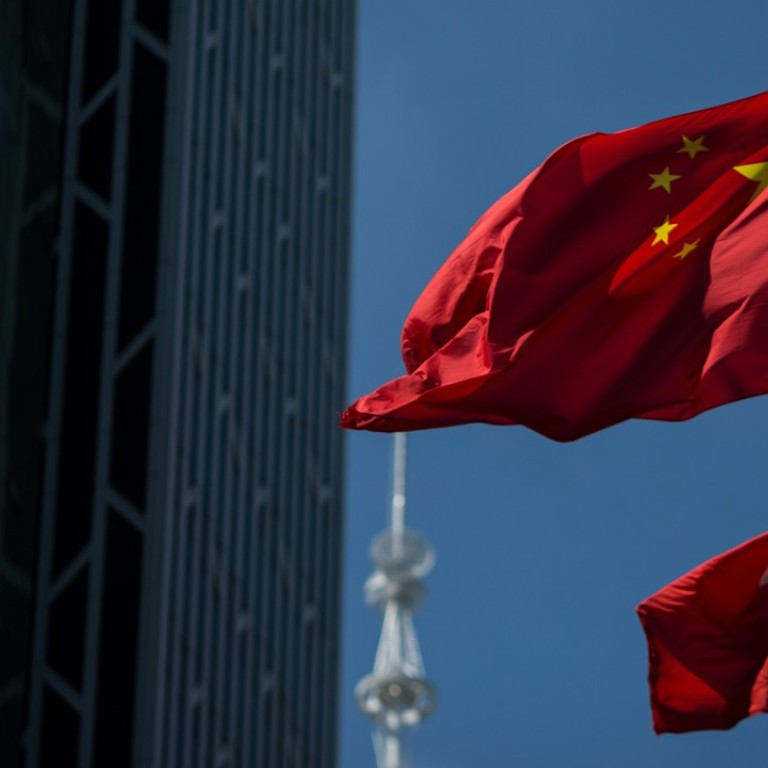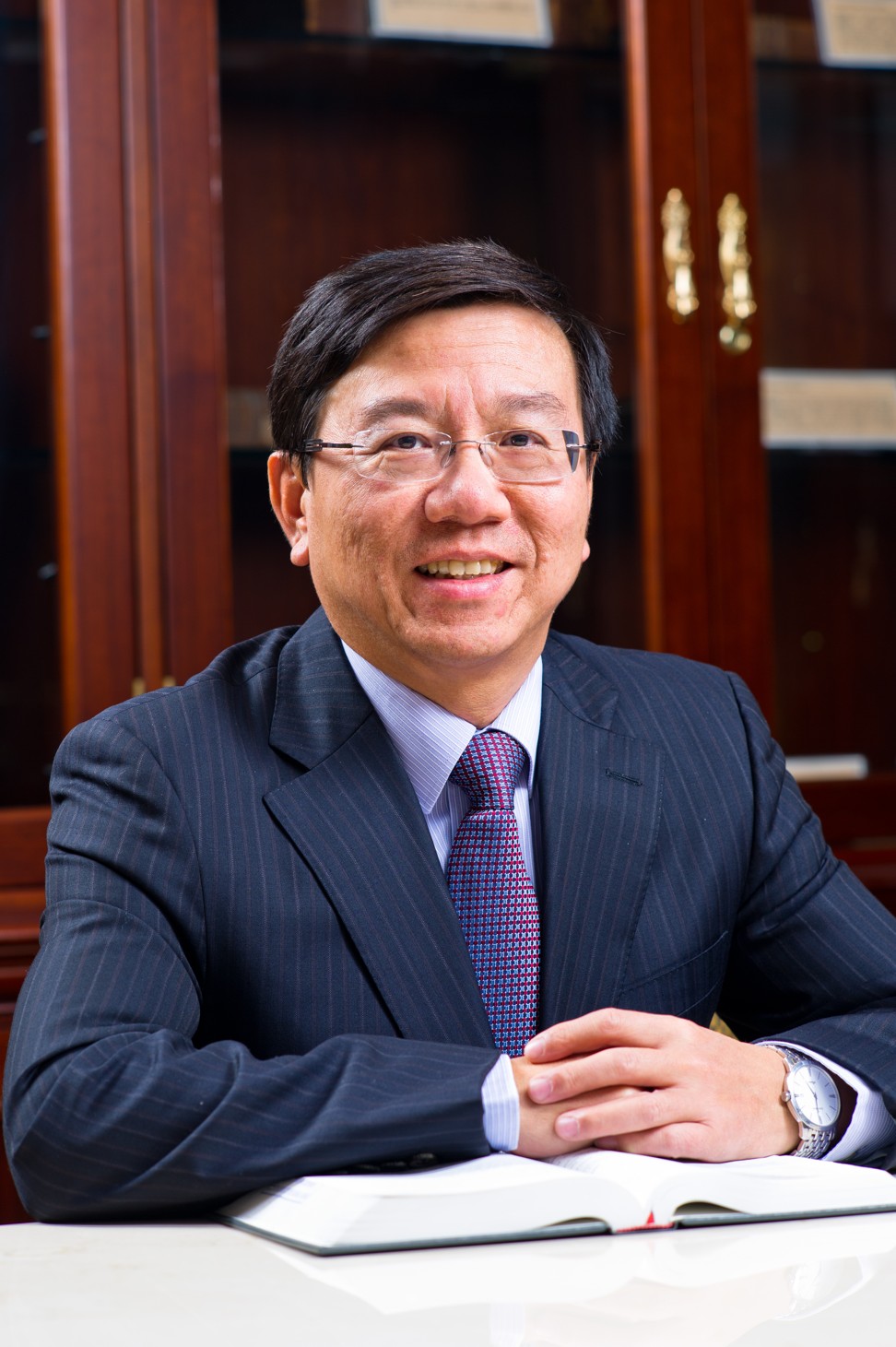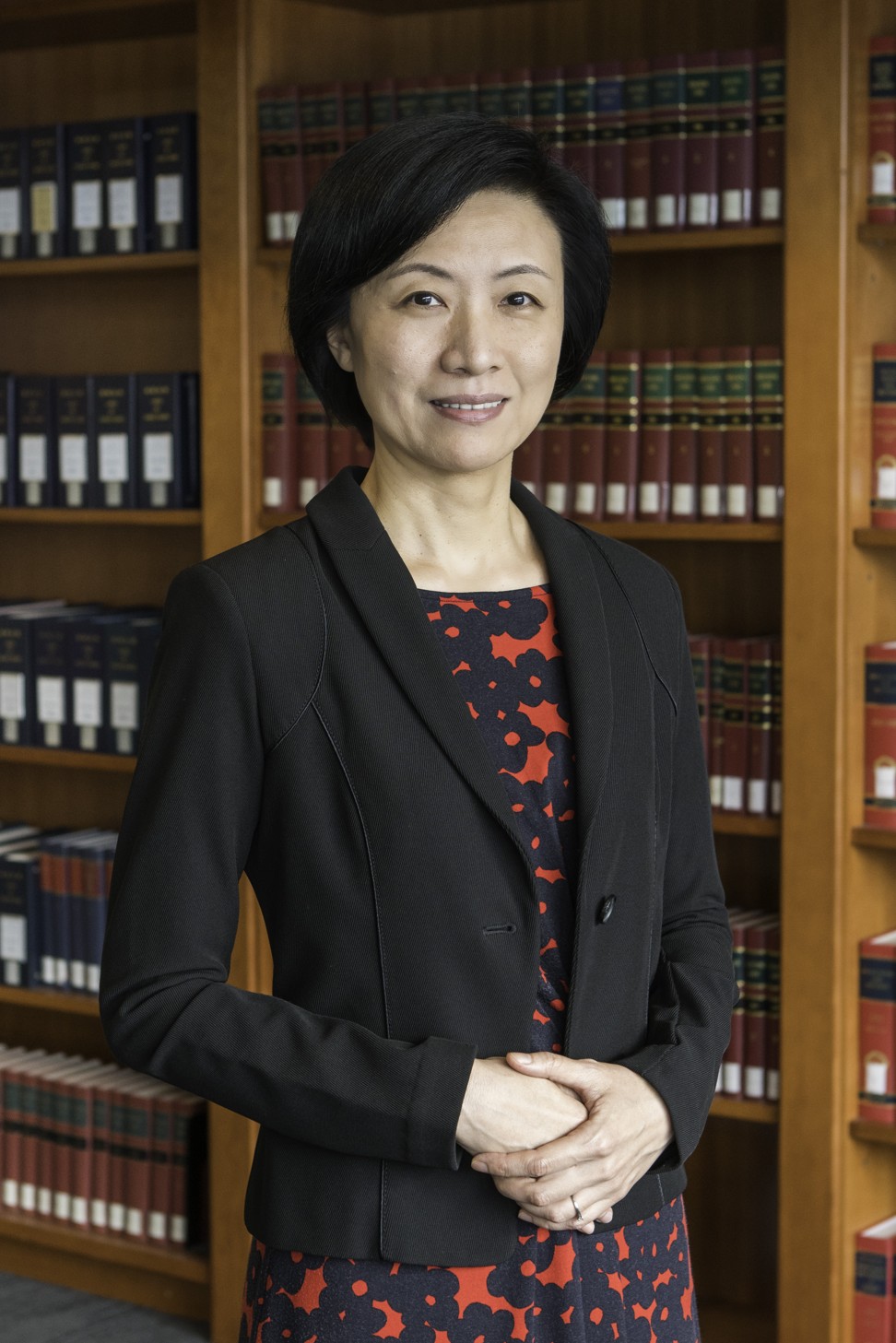
Hong Kong universities give master’s law students insight into Chinese legal system
There is growing demand for trained professionals with a clear understanding of the differences between Hong Kong and Chinese Business Law
Mainland China and Hong Kong not only operate under two political systems, they also have legal codes based on separate traditions. Two master of law programmes run by local universities aim to provide their students with an understanding of aspects of the Chinese legal system.
City University of Hong Kong (CityU) has been offering its master of laws (LLM) – leading to the Renmin University of China award, or LLMRU – programme since 1995. One of the mainland’s leading law schools, Renmin University of China law school is based in Beijing. However, instructors from Renmin University teach this programme at the CityU campus in Hong Kong, helping those studying locally to acquire a thorough understanding of the Chinese legal system. Professor Gu Minkang of CityU’s law school is the LLMRU programme co-ordinator. Asked why the programme is so popular, Gu points to the structure of the curriculum and the reputation of the qualification, he says, will enable graduates to engage in Chinese law-related activities.
“Many students understand that further economic development on the mainland will offer them more Chinese law-related job opportunities,” he says. “Many students have already benefited from this programme and have found new jobs after their graduation.”

Gu says the programme covers most core laws such as jurisprudence, constitutional and administrative law, legal history, criminal law, real estate law, labour law, environment law, intellectual property law, contract law, company law, securities law, procedural laws, law of property right, tort law, fair trade law, foreign investment law and arbitration law. “To earn their master of law degree, students will need to master all these Chinese laws,” he adds.
Gu says students tend to complete the programme within three years. “In the first and second years, students are required to finish 12 courses and, thereafter, one thesis, in order to graduate. In exceptional cases, students are allowed to expedite their study by taking more courses in one semester, so that they can graduate earlier.”
The LLMRU is a part-time programme, with classes in the evening and on Saturday afternoons. This enables busy professionals and executives to fit studies around their working lives.
“The students come from various organisations,” Gu explains. “Over 15 per cent are working in law-related and legal professions, as, say, lawyers or law clerks. Others intend to engage in China law-related jobs.”
He says completing the programme will give students a reputable degree, and ample opportunities to explore new careers. “Most importantly, they could serve as a bridge to exhibit the real Chinese laws to Hong Kong people,” Gu adds.
Since all courses are taught in Mandarin, candidates must have basic Mandarin skills. Gu notes that studying on the LLMRU can help students to improve their Mandarin.
This programme is only offered to locally-based applicants. However, a foreign national working in Hong Kong with Mandarin skills, adequate for the required course work and independent study, can apply.
Reflecting on what makes the LLMRU programme special, Gu says it has been approved by the Ministry of Education and the Hong Kong Education Bureau. “All its courses are taught by renowned law professors from Renmin University of China, which is ranked as the number one law school on the mainland,” he adds.
As the legal system on the mainland continues to evolve in line with broader social developments, the LLMRU programme’s role may become even more important in keeping those with an interest in Chinese law abreast of reforms.
“A deepening process of judicial reform has been taking place on the mainland,” Gu notes. “Chinese law has developed very quickly and many laws have been changed significantly in order to cater to the changes. In addition, many new laws have been promulgated to facilitate the social and economic development of China.”
Hong Kong has long been heralded as the commercial gateway between East and West. Alongside its role as a world-class shipping and logistics hub for trade, the city has become a major financial and professional services centre for multinationals looking to do business on the mainland. Hong Kong’s role as a facilitator for commerce should receive a further boost if Beijing’s global economic strategy, “Belt and Road Initiative”, develops as hoped.
All of this points to an increase in demand for trained professionals with a clear understanding of the differences between Hong Kong and Chinese business law. The master of laws (LLM) in Chinese business law – or LLM CBL – programme run by Chinese University (CUHK) is intended to help students to seize these and other opportunities.
Professor Zhao Yuhong is in charge of the LLM CBL programme, which was launched in 2006. As with the overall legal frameworks on the mainland and Hong Kong, when it comes to business law, Zhao sees the differences in the two systems lying in the roots of separate legal traditions. While the mainland follows the model of continental European civil law, Hong Kong’s business laws are based on English common law.
A deepening process of judicial reform has been taking place on the mainland. Chinese law has developed very quickly and many laws have been changed significantly in order to cater to the changes
“Certain values and principles are shared by Chinese law and Hong Kong law,” she notes, however, “while different approaches may be taken to address similar socio-economic problems”.
Zhao, too, sees Chinese business law evolving to reflect new needs and conditions. “Almost all subjects and components of Chinese business law are developing to accommodate the changing needs of the society. One very important reform in Chinese civil law is the promulgation and implementation of the General Rules of Civil Law in 2017.”
The reasons for joining the LLM CLB programme, she says, vary according to applicants’ career aspirations and level of experience.
Professionals may be looking to enhance their skills by familiarising themselves with Chinese business law. Fresh graduates from bachelor of laws programmes may want to develop their knowledge, skills and capabilities in this field before taking their first career steps. This course is also a common path for lawyers and others seeking to burnish their professional qualifications.
“Our LLM students come from diverse backgrounds,” Zhao explains. “Most of them have a first degree in law. Others are holders of professional qualifications, such as CFA and CPA, with substantial experience in law-related work.”
Others, she says, are fresh graduates, with excellent academic records, from prestigious universities in Hong Kong, the mainland and overseas. Yet, more have work experience in commerce, accountancy, social work and public administration.

“Under the LLM Chinese Business Law, we offer four compulsory courses: legal system and methods in China, Chinese civil law, Chinese contract law and Chinese company law,” Zhao explains. “In addition, we offer a range of elective courses including Chinese intellectual property law, Chinese environmental law, Chinese tax law, and Chinese financial law.”
Classes incorporate a mix of lectures, seminars, tutorials, presentations and class discussions.
To accommodate the work commitments of students, the LLM CLB programme can be pursued in full-time or part-time mode. Classes are held during the day and in the evening on weekdays, and during the day on Saturdays, and take place in Central at the CUHK Graduate Law Centre in the Bank of America Tower.
The normative study period for full-time students is one year, and the maximum time allowed is two years. Part-time students are expected to complete the programme within two years, but can take up to three years.
To be recommended for graduation, students need to complete 24 units – consisting of 12 units of required courses and 12 of elective courses – and pass all the assessments with a cumulative GPA of at least 2.0. A three-unit course will usually have three teaching hours per week.
Zhao says the LLM CBL is a highly competitive programme that draws applications from across the globe. “For the 2017/18 academic year, we have admitted overseas applicants from countries such as Australia, New Zealand, Switzerland and Thailand.”
She believes its popularity can be attributed to factors connected to both the university and the programme itself.
“Our LLM CBL programme is taught in English, by first-rate faculty, and conducted within the stimulating and exciting environment of one of the world’s premier business centres,” Zhao says. “CUHK law school has a dynamic faculty from various jurisdictions with specialist knowledge and global experience.”
This story appeared in the Professional Education Guide 2018 as: law of the land
